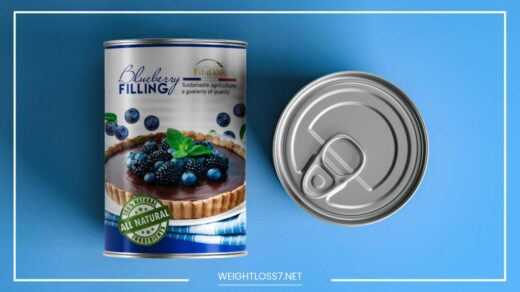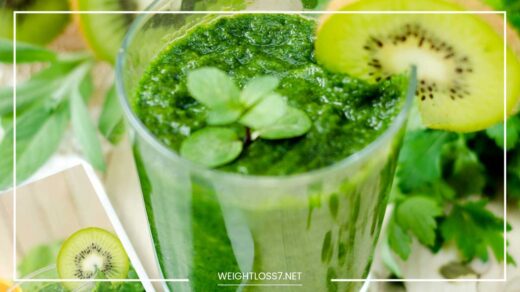Fish Oil and Weight Loss

Weight Loss
Fish Oil and Weight Loss: Unveiling the Science and Crafting Your Strategy
Fish oil supplements have become a mainstay in the health and wellness world, lauded for their diverse benefits. But within this realm of potential advantages lies a question many grapple with: can fish oil truly help you shed pounds?
The answer, as with many things in nutrition, is a fascinating exploration of “maybe” with a dash of “it depends.”
This comprehensive blog post dives deep into the intricate dance between fish oil and weight loss. We’ll explore the science behind the claims, unveil the potential benefits and limitations, and equip you with the knowledge to craft your own personalized strategy.
Demystifying Fish Oil: A Journey into Omega-3s
Before delving into weight loss, let’s understand the star player: fish oil. It’s a concentrated source of omega-3 fatty acids, particularly EPA (eicosapentaenoic acid) and DHA (docosahexaenoic acid).
These essential fats play a vital role in various bodily functions, including brain health, heart health, and inflammation management.
Our bodies can’t manufacture omega-3s on their own. We rely on dietary sources like fatty fish (salmon, tuna, sardines) or fish oil supplements to meet our needs.
The Allure of Fish Oil and Weight Loss: Potential Mechanisms
Several mechanisms by which fish oil might influence weight loss are being actively explored. Let’s delve into these intriguing possibilities:
- The Hunger Hormone Tango: Studies suggest that omega-3s might influence hormones like leptin (promotes satiety) and ghrelin (stimulates hunger) [1]. By potentially increasing leptin and decreasing ghrelin, fish oil could lead to reduced calorie intake and feelings of fullness.
- Metabolic Matchmaker: Research indicates that omega-3s may have a thermogenic effect, slightly increasing metabolic rate [2]. This translates to the body burning more calories at rest, potentially contributing to weight loss.
- Body Composition Shuffle: Studies show that fish oil might promote a shift in body composition, favoring fat loss and muscle gain, even if the total weight on the scale doesn’t change significantly [3]. This is because muscle tissue is denser than fat, leading to a leaner physique.
- Inflammation’s Downward Spiral: Chronic, low-grade inflammation is linked to obesity and insulin resistance. Fish oil’s anti-inflammatory properties might play a role in weight management by improving insulin sensitivity and potentially reducing inflammation-induced fat storage [4].
Sifting Through the Evidence: What Does the Research Actually Say?
The research on fish oil and weight loss paints a complex picture. Here’s a breakdown to help you navigate the findings:
- Weight Loss: Studies present mixed results. Some report modest weight loss with fish oil supplementation, while others show no significant difference compared to a placebo [5, 6]. This suggests that fish oil might not be a standalone weight loss solution.
- Fat Loss and Body Composition: Several studies suggest that fish oil may help reduce belly fat and improve waist circumference, even if overall weight doesn’t change significantly [7]. This can be a positive indicator of a healthier body composition and a shift towards a leaner physique.
Important Factors to Consider: Optimizing Your Fish Oil Journey
While the research offers intriguing possibilities, maximizing your results requires a strategic approach:
- Dosage and Quality Matter: The effectiveness of fish oil supplements depends heavily on the dosage and quality. Aim for high-quality supplements with at least 1000mg combined EPA and DHA daily [8]. Look for reputable brands that undergo third-party testing for purity and potency. Consider enteric-coated capsules to minimize fishy aftertaste and burping.
- Diet is King (or Queen): Fish oil is not a magic bullet. For sustainable weight loss, it should be combined with a healthy diet that prioritizes whole, unprocessed foods like fruits, vegetables, whole grains, and lean protein.
- Exercise is Your Partner: Regular physical activity, including both cardio and strength training, is crucial for weight loss and overall health. Exercise helps you burn more calories and build muscle, which can further enhance the potential benefits of fish oil.
- Track Your Progress: Monitoring your weight, body measurements, and how you feel is essential to see if fish oil is making a difference for you. Be patient and consistent – weight loss is a journey, not a destination.
- Consult Your Doctor: Discuss incorporating fish oil with your doctor, especially if you have any underlying health conditions, take medications, or are pregnant or breastfeeding.
Fish Oil and Safety: Addressing Potential Side Effects
Fish oil is generally safe for most healthy adults at recommended doses. However, individuals with certain medical conditions, pregnant or breastfeeding women, and people taking medications should consult their doctor before starting fish oil supplements.
This is because fish oil can interact with certain medications, particularly blood thinners, and may not be suitable for everyone depending on their health status.
- Burping or fishy aftertaste: This can be minimized by taking enteric-coated capsules or consuming fish oil with a meal.
- Upset stomach, diarrhea: These are usually mild and temporary, especially when starting fish oil. Consider taking fish oil with food or reducing the dosage initially.
- Blood-thinning effects: Fish oil has mild blood-thinning properties. Consult your doctor if you take blood thinners or have a bleeding disorder before starting fish oil.
Alternatives to Fish Oil Supplements: Embracing Dietary Sources
If you’re not a fan of fish or supplements, you can get your daily dose of omega-3s through delicious dietary sources. Here are some excellent options:
- Fatty Fish Feast: Salmon, tuna (canned in water), sardines, mackerel, and herring are all rich in EPA and DHA. Aim to include at least two servings of fatty fish per week in your diet.
- Flaxseed Power: Flaxseeds are a plant-based source of alpha-linolenic acid (ALA), which the body can convert into EPA and DHA, albeit less efficiently. Enjoy ground flaxseeds sprinkled on cereal, yogurt, or smoothies.
- Chia Seed Surprise: These tiny seeds are another source of ALA. Include chia seeds in your puddings, oatmeal, or baked goods.
- Walnut Wisdom: Walnuts are a good source of ALA and other beneficial nutrients. Snack on a handful of walnuts or use them in salads and trail mixes.
Beyond Weight Loss: Unveiling the Broader Benefits of Fish Oil
While the focus of this post has been on weight loss, fish oil offers a multitude of potential health benefits:
- Heart Health Hero: Studies suggest fish oil may help reduce heart disease risk factors like triglycerides and inflammation [9].
- Brainpower Booster: Research indicates that fish oil might play a role in cognitive function and may protect against age-related cognitive decline [10].
- Mood Magic: Some studies suggest fish oil may have mood-regulating properties and could be beneficial for those struggling with depression or anxiety [11].
- Eye Health Advocate: Fish oil may help maintain healthy vision and potentially reduce the risk of age-related macular degeneration [12].
The Environmental Impact: Choosing Sustainable Fish Oil
As with any seafood consumption, the environmental impact of fish oil supplements is a crucial consideration. Overfishing can deplete fish populations and disrupt marine ecosystems. Here are some tips for choosing sustainable fish oil:
- Look for certifications: Choose fish oil brands with certifications from organizations like the Marine Stewardship Council (MSC) that promote sustainable fishing practices.
- Ask questions: Don’t hesitate to contact fish oil supplement companies to inquire about their sourcing practices.
- Explore alternative sources: Consider krill oil, derived from small crustaceans, as a more sustainable alternative to fish oil.
Crafting Your Personalized Fish Oil Strategy
Fish oil offers a promising path towards weight loss, potentially influencing satiety, metabolism, and body composition, especially when combined with a healthy diet and exercise. However, the research is ongoing, and individual results may vary.
By understanding the science, optimizing your approach with quality supplements and a healthy lifestyle, and prioritizing sustainability, you can embark on a well-informed fish oil journey.
Remember, consult your doctor before starting any new supplements, and focus on building sustainable habits for long-term weight management and overall health.
Frequently Asked Questions (FAQ) About Fish Oil and Weight Loss
- Can fish oil help me lose belly fat specifically?
While research suggests fish oil may help reduce belly fat somewhat, it’s unlikely to target belly fat alone. Spot reduction (losing fat in a specific area) is generally not considered a realistic approach to weight loss. However, combining fish oil with a healthy diet and exercise can promote overall fat loss, including belly fat.
- How long does it take to see results with fish oil for weight loss?
Individual results will vary. Some people may experience subtle changes within a few weeks, while others may take several months to notice a difference. Consistency is key. Aim to incorporate fish oil into your routine for at least 3 months to assess its effectiveness for you.
- Are there any medications that interact with fish oil?
Yes, fish oil can interact with certain medications, particularly blood thinners. Always consult your doctor before starting fish oil, especially if you take any medications.
- Is fish oil safe for everyone?
Fish oil is generally safe for most healthy adults at recommended doses. However, people with certain medical conditions or pregnant or breastfeeding women should consult their doctor before taking fish oil supplements.
- What are some good sources of information on fish oil and weight loss?
This blog post is a great starting point! You can also consult reputable websites like the National Institutes of Health (NIH) or the Mayo Clinic for evidence-based information.
Glossary of Terms
- Omega-3 fatty acids: Essential fats that play a crucial role in various bodily functions, including brain health, heart health, and inflammation management. Fish oil is a concentrated source of two specific omega-3s: EPA (eicosapentaenoic acid) and DHA (docosahexaenoic acid).
- Leptin: A hormone produced by fat cells that signals satiety (feeling full).
- Ghrelin: A hormone produced in the stomach that stimulates hunger.
- Thermogenesis: The process by which the body burns calories to produce heat.
- Metabolic rate: The rate at which your body burns calories for energy.
- Body composition: The proportion of muscle, fat, and bone in your body.
- Chronic inflammation: Low-grade inflammation that persists over time and is linked to various health problems, including obesity and insulin resistance.
- Enteric-coated capsules: Capsules with a special coating that allows them to pass through the stomach intact, minimizing burping and fishy aftertaste.
- ALA (alpha-linolenic acid): A plant-based omega-3 fatty acid found in sources like flaxseeds and chia seeds. The body can convert ALA into EPA and DHA, but the conversion rate is relatively low.
- Triglycerides: A type of fat found in the blood. High triglyceride levels can increase the risk of heart disease.
- Marine Stewardship Council (MSC): An organization that certifies sustainable fishing practices.
Final Word: A Balanced Approach to Weight Loss
Fish oil offers a potential tool in your weight loss journey, but it’s not a magic bullet. Remember, sustainable weight loss is achieved through a combination of healthy eating habits, regular exercise, and adequate sleep. Here are some key takeaways:
- Focus on a balanced diet rich in fruits, vegetables, whole grains, and lean protein.
- Prioritize regular physical activity, including both cardio and strength training.
- Consider incorporating fish oil supplements, aiming for high-quality options with at least 1000mg combined EPA and DHA daily.
- Be patient and consistent – weight loss takes time and effort.
- Consult your doctor before starting any new supplements, especially if you have any underlying health conditions.
By adopting a holistic approach that incorporates fish oil strategically, you can move towards a healthier weight and a more vibrant you.

















